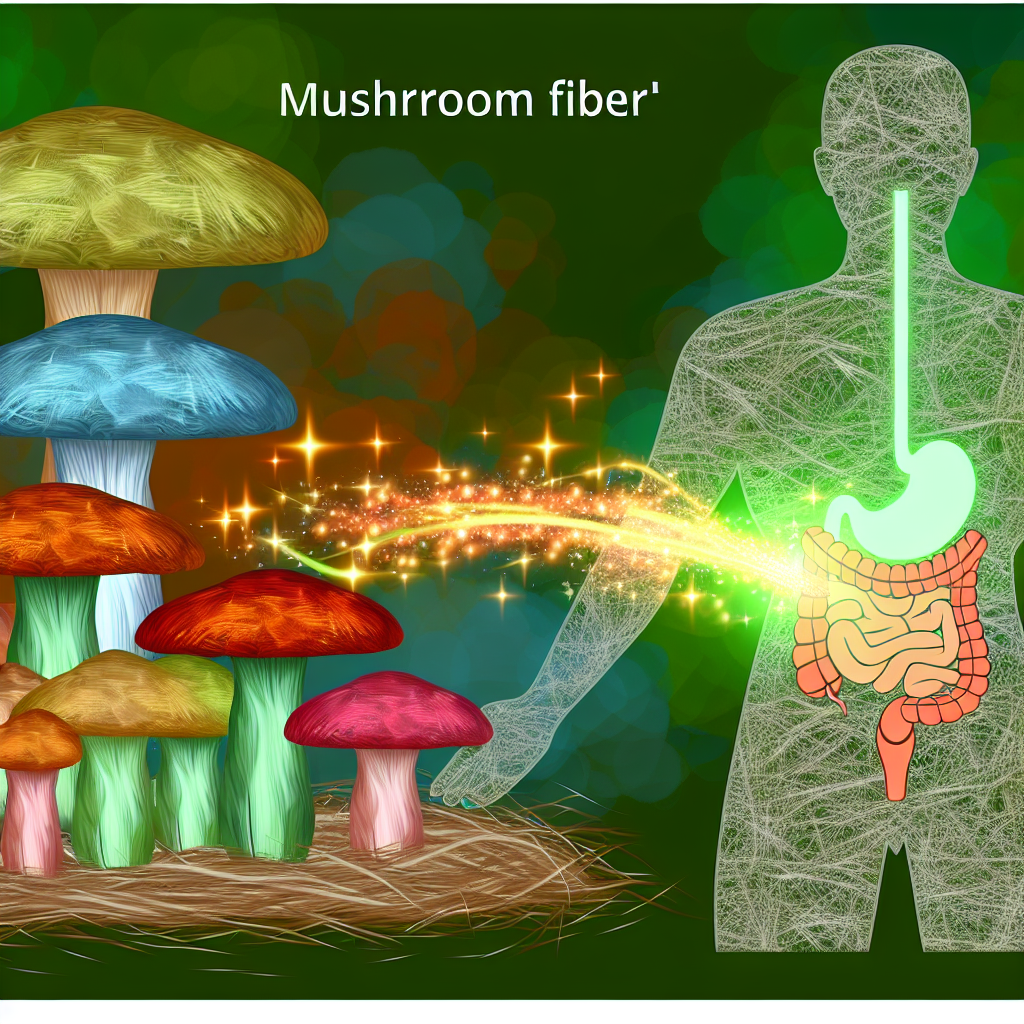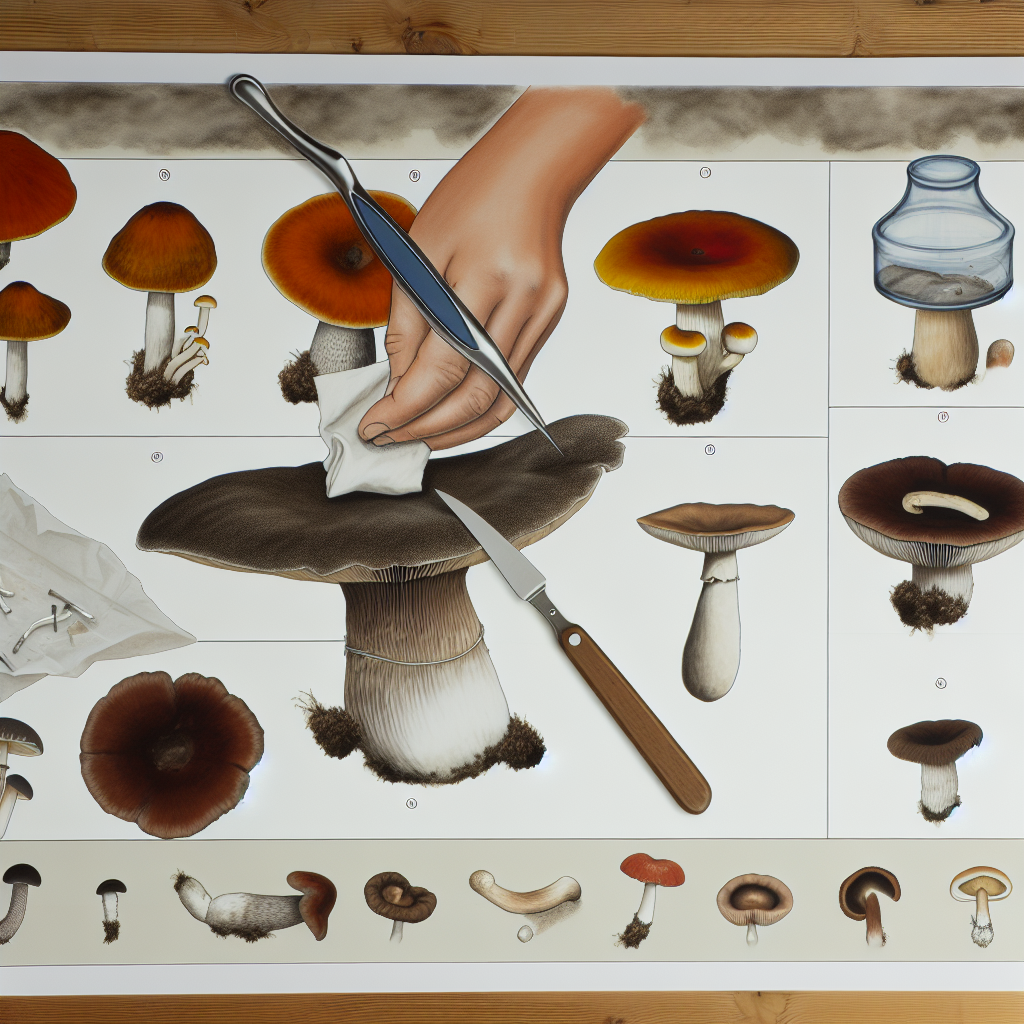Mushroom Fiber Benefits: Supporting Digestive Health
Introduction
Our digestive system plays a crucial role in overall health, influencing everything from nutrient absorption to immune function and even mental well-being. Recently, dietary fiber has gained widespread recognition for its essential role in maintaining gut health, preventing constipation, and supporting beneficial gut bacteria. While fruits, vegetables, and whole grains are often credited as the best sources of fiber, mushrooms are emerging as a powerful and unique fiber source that can have significant benefits for digestion.
Mushrooms contain a variety of fibers, including chitin, β-glucans, and other polysaccharides, which contribute to their beneficial effects on gut health. Unlike traditional plant fibers, which primarily include cellulose and lignin, mushroom fibers have distinctive structural and biological properties. Chitin, for example, is a type of insoluble fiber found in the cell walls of fungi. It not only promotes bowel regularity but also provides a prebiotic function by stimulating the growth of beneficial gut bacteria.
Another crucial component of mushroom fiber is β-glucans, a type of soluble fiber with immunomodulatory properties. β-glucans have been extensively studied for their ability to enhance immune system function and their impact on metabolic health. In terms of digestion, they act as prebiotics, fostering a healthy gut microbiome and potentially reducing inflammation in the digestive tract. This makes mushrooms an excellent functional food for individuals struggling with digestive issues such as irritable bowel syndrome (IBS), bloating, or sluggish digestion.
Additionally, mushrooms contain other bioactive compounds like polyphenols and antioxidants, which further contribute to gut health by reducing oxidative stress and inflammation in the gastrointestinal system. Studies suggest that mushroom fiber not only supports digestive health but also plays a role in reducing the risk of chronic diseases such as diabetes, cardiovascular disease, and obesity—all of which are closely linked to gut health.
With increased interest in holistic and natural health approaches, mushrooms are rapidly gaining attention as both a culinary delight and a medicinal powerhouse. Whether consumed as whole foods, extracts, or dietary supplements, their fiber-rich content offers a unique and effective way to support digestive well-being. In this article, we’ll delve into professional research and medical studies that highlight the specific benefits of mushroom fiber for digestion, helping you better understand why incorporating more mushrooms into your diet could be a game-changer for your gut health.
The Science Behind Mushroom Fiber and Gut Health
Scientific research has increasingly highlighted the positive effects of mushrooms on digestive health, particularly due to their fiber content. Several notable studies have investigated the mechanisms through which mushroom fiber contributes to a healthier gut microbiome, immune health, and metabolic function.
A study published in the International Journal of Molecular Sciences examined the prebiotic effects of mushroom-derived polysaccharides ([Zhang et al., 2021](https://doi.org/10.3390/ijms22105132)). The findings indicated that β-glucans and chitin in mushrooms promote the growth of beneficial bacteria such as Bifidobacterium and Lactobacillus in the gut. This shift in gut microbiota composition is associated with improved digestion, enhanced immune responses, and a reduction in harmful bacteria.
Similarly, a 2022 study in Food & Function explored the impact of mushroom fibers on gut inflammation and immune balance ([Xu et al., 2022](https://doi.org/10.1039/D2FO00124J)). The researchers focused on β-glucans from edible mushrooms and found that these fibers significantly reduced markers of gut inflammation while promoting microbial diversity. This study supports the idea that mushroom fiber has potential therapeutic applications for individuals suffering from inflammatory bowel diseases (IBD) and other digestive disorders.
Another study, conducted by Vetvicka and Vetvickova (2020) and published in the Journal of Dietary Supplements, analyzed the immunomodulatory effects of mushroom-derived β-glucans ([Vetvicka & Vetvickova, 2020](https://doi.org/10.1080/19390211.2020.1714451)). The study concluded that a diet supplemented with mushroom polysaccharides led to improvements in gut barrier function, suggesting that mushroom fiber may help protect against conditions such as leaky gut syndrome and food sensitivities.
Furthermore, an analysis by Jayachandran et al. (2017) in the Journal of Functional Foods emphasizes the role of mushroom fiber in regulating blood sugar and lipid metabolism while simultaneously improving gut microbiota composition ([Jayachandran et al., 2017](https://doi.org/10.1016/j.jff.2017.10.053)). Given that poor digestive health is often linked with metabolic disorders, these findings reinforce the potential of mushroom fiber in holistic digestive wellness.
How Mushroom Fiber Supports a Healthy Gut Microbiome
Mushrooms serve as an excellent prebiotic food source, meaning they nourish beneficial bacteria in the gut. The two primary fibers in mushrooms—chitin and β-glucans—play key roles in improving gut microbiota diversity. Increased levels of beneficial bacteria like Bifidobacterium and Lactobacillus help with:
– Improved digestion and nutrient absorption
– Enhanced immune function
– Reduced bloating and gas
– Protection against harmful gut pathogens
As research continues to explore the gut-brain connection, consuming fiber-rich foods like mushrooms may also positively influence mental and emotional well-being through improved microbiome balance.
Mushrooms and Digestive Disorders: Potential Therapeutic Benefits
For individuals suffering from digestive conditions such as IBS, IBD, or leaky gut syndrome, incorporating mushrooms into their diet may help alleviate symptoms. Mushroom fiber has demonstrated anti-inflammatory and gut-protective effects, which could be beneficial for:
– Reducing gut inflammation
– Supporting intestinal barrier function
– Decreasing symptoms of bloating, constipation, and irregularity
Certain types of mushrooms, such as shiitake, reishi, and maitake, may offer additional medicinal benefits due to their high β-glucan content, potentially making them a valuable dietary addition for those managing chronic digestive issues.
Ways to Incorporate More Mushrooms into Your Diet
If you’re looking to add more mushrooms to your diet for digestive health, here are some simple ideas:
– **Sautéed Mushrooms** – Add them to stir-fries, pasta, or grain bowls.
– **Mushroom Powder** – Mix into smoothies, coffee, or soups for an extra fiber boost.
– **Mushroom-Based Broths** – Use as a base for soups and stews.
– **Supplement Form** – Consider mushroom fiber supplements in tablet or powder form.
By making mushrooms a regular part of your diet, you can naturally support a balanced and thriving gut microbiome.
Conclusion: Embrace Mushrooms for Better Digestive Health
Mushrooms are not only a delicious and nutritious addition to your diet but also a valuable source of unique fibers that support digestive health. Scientific research consistently highlights the benefits of chitin and β-glucans in promoting beneficial gut bacteria, enhancing immune function, and reducing gut inflammation. As we continue to discover more about the gut microbiome’s role in overall health, it becomes increasingly clear that mushrooms can serve as a key dietary component for digestive wellness.
Whether consumed fresh, dried, or in supplement form, adding mushrooms to your regular diet may be a simple yet effective way to support long-term digestive health naturally.
Summary:
Mushrooms are a unique and powerful source of dietary fiber that can significantly benefit digestive health. Their fibers, including chitin and β-glucans, promote the growth of beneficial gut bacteria, reduce inflammation, and support immune function. Incorporating more mushrooms into your diet, whether as whole foods or supplements, can help alleviate symptoms of digestive disorders and contribute to overall gut wellness.
References:
1. [Zhang et al., 2021](https://doi.org/10.3390/ijms22105132)
2. [Xu et al., 2022](https://doi.org/10.1039/D2FO00124J)
3. [Vetvicka & Vetvickova, 2020](https://doi.org/10.1080/19390211.2020.1714451)
4. [Jayachandran et al., 2017](https://doi.org/10.1016/j.jff.2017.10.053)

Dominic E. is a passionate filmmaker navigating the exciting intersection of art and science. By day, he delves into the complexities of the human body as a full-time medical writer, meticulously translating intricate medical concepts into accessible and engaging narratives. By night, he explores the boundless realm of cinematic storytelling, crafting narratives that evoke emotion and challenge perspectives. Film Student and Full-time Medical Writer for ContentVendor.com




